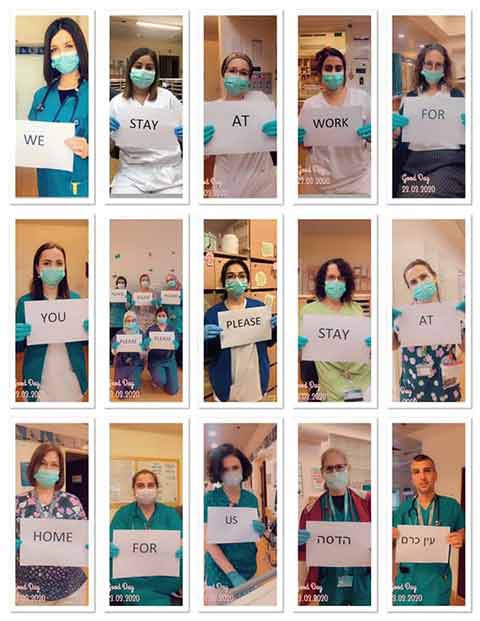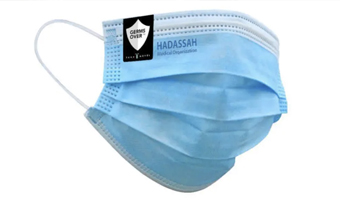
UPDATE: As of today, the Hadassah Medical Organization has tested 596 staff members at its two campuses, and 15 have tested positive for the coronavirus, including a security officer.
All 15 are now home in isolation and undergoing an epidemiological investigation to determine who has come in contact with them. “The results need to be a red light for every hospital and large organization in Israel, alerting them to the fact that they can avoid mass contagion of their workers by determining who is sick and isolating them,” emphasizes Hadassah Director General Prof. Zeev Rotstein.”
Hadassah is also planning to help test employees of essential industries, so they can work in corona-free plants. “If this model works,” Prof. Rotstein says, “we will recommend to decision- makers that they broaden testing to the whole essential work force.”
As a result of the Hadassah Medical Organization’s decision to test all staff members at both Hadassah Hospital Ein Kerem and Hadassah Mount Scopus, already in the early hours of testing, eight asymptomatic staff members tested positive. Because they had no symptoms, they did not realize they were infected.
Hadassah Medical Organization Director General Prof. Zeev Rotstein reports that among those who tested positive were six staff members from Hadassah Mt. Scopus, where there are no coronavirus patients. “All of these individuals will go into immediate isolation and undergo an epidemiological inquiry in order to quarantine those who were in contact with them,” Prof. Rotstein reports.
To date, Intensive Care Unit staff, Operating Room staff, and the Engineering Department employees have been tested. Prof. Rotstein says, “In a few days, we will complete the testing of all the employees in Ein Kerem and Mount Scopus. The infectious disease team, made up of nurses and laboratory technicians, is working around the clock to bring this about.”
Hadassah is conducting this staff-wide testing in addition to examining the hundreds of other test samples received by its laboratories from other sources, such as Magen David Adom.
To increase the probability of identifying all the infected staff members, testing is being conducted twice over five days. All those testing negative will wear a large green “corona-free” badge on their lapels. Although deemed to be coronavirus-free, staff will, in any case, be duty-bound to follow the agreed-upon protocols outside of the hospital as well.
Prof. Rotstein emphasizes, “It is very important to us to protect our staff and keep them free of disease and working, not only for ourselves and our families, but because of our national responsibility to protect and treat the people of Israel.”
He adds, “Hadassah’s pilot testing program should be replicated in all the hospitals in the country. It should also be implemented among all essential workers, as part of an exit strategy from the corona crisis and toward the recovery of the economy.”









